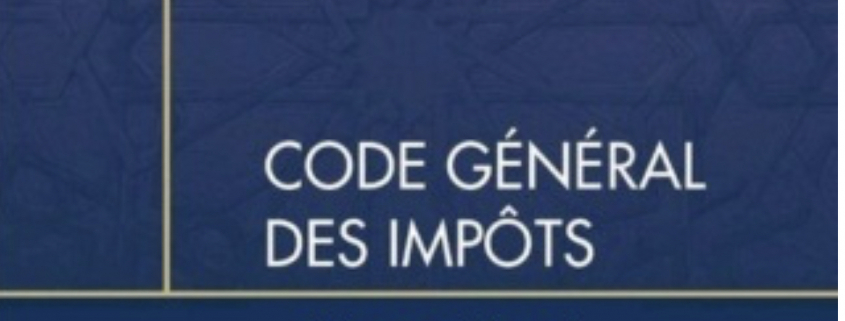Taxpayer’s overall tax situation in Morocco (2024)
Taxpayer’s overall tax situation Examination (ESFE Morocco) is one of the most feared procedures during a tax audit of a natural person.
This examination, carried out by the Tax Administration, aims to determine whether an individual’s lifestyle is in line with the income they declare.
This is a complex procedure that can have significant consequences for a taxpayer’s assets and finances.
This article aims to:
- First, to demystify this review,
- Second, to explain how it works
- and, finally, to provide practical advice for navigating this process efficiently and safely.
Whether you are an individual or a professional, a clear understanding of this review is essential to avoid unpleasant surprises and ensure optimal tax compliance.
Introduction to tax audit and its importance

Before discussing the taxpayer’s overall tax situation, it is important to demystify the concept of a tax audit in Morocco.
The tax audit is a crucial process for both individuals and businesses. Understanding its importance and knowing how to navigate through this process is essential to ensuring tax compliance and avoiding potential penalties.
Overview of the tax audit process and examination of the taxpayer’s overall tax situation
The tax audit procedure in Morocco is a structured and regulated process aimed at ensuring taxpayers’ compliance with the tax laws in force. Examining the tax situation is just one of the many procedures the administration can use.
Here are the key steps and important aspects of this procedure:
1. Selection for Tax Audit
The procedure usually begins with the taxpayer being selected for an audit. This selection may be random or based on specific criteria, such as inconsistencies in tax filings, deviations from industry standards, or reporting.
2. Notification of Control
Once selected for an audit, the taxpayer receives a notification from the tax administration. This notification specifies the nature of the inspection, whether it is a documentary inspection (examination of declarations and accounting documents) or an on-site inspection (visit of tax inspectors to the company’s premises).
3. Preparation Phase
Before the actual start of the audit, the taxpayer has the right to prepare. This usually involves collecting and organizing all relevant accounting and tax documents, such as account books, invoices, previous tax returns, and proof of payment.
4. Conduct of the Control
During the audit, tax inspectors examine the accounting documents and records in detail. They can ask questions, request clarifications and check the compliance of tax declarations with accounting records.
5. Right of Reply
The taxpayer has the right to respond to the observations of tax inspectors. This may include providing additional justifications, clarifying certain transactions, or correcting potential errors.
6. Control Report and Recovery Proposal
At the end of the audit, the tax administration draws up a report which may include adjustment proposals. This report is sent to the taxpayer, who then has the option of accepting it, contesting it or requesting a meeting to discuss the points of disagreement.
7. Dispute and Negotiation Phase
If the taxpayer contests the results of the audit, he can begin a negotiation or dispute phase. This may involve additional discussions with the tax authorities, the presentation of additional evidence, or even an appeal to the competent legal authorities.
8. Conclusion of Check and Payment
Once the audit process is completed and the tax adjustments are finalized, the taxpayer must pay any additional payments due, including any penalties and late payment interest.
The tax audit may involve auditing accounts, analyzing tax returns, and assessing compliance with tax regulations. It is important to know the steps in this process to better prepare for it.
The review of the overall tax situation only concerns individuals. However, we explain some important concepts relating to tax auditing as a whole.
Examination of the taxpayer’s overall tax situation (ESFP) in Morocco
This procedure, in particular for individuals, is a procedure put in place by the Moroccan tax administration. This procedure aims to assess the consistency between the taxpayer’s standard of living and his declared income. Here are the key aspects of this review:
Objective of the tax situation review
The main goal of the ESFP is to ensure that taxpayers report all their income and pay the corresponding taxes. This includes not only professional income but also other potential sources of income.
Selection criteria for the examination of the tax situation
Taxpayers may be selected for a tax review based on various criteria, such as significant expenditures relative to reported income, acquisitions of valuable real estate or vehicles, or outward signs of wealth that do not match. not to declared income.
What is the examination of the taxpayer’s overall tax situation?

Article 216 of the CGI:
“The administration examines the tax situation of the taxpayer having his tax domicile in Morocco, taking into account all of his declared income, taxed automatically or benefiting from an exemption from declaration, and falling within the scope of application of income tax.”.
Examining the taxpayer’s overall tax situation is a tax procedure carried out by the Moroccan Tax Administration. Indeed, it aims to assess whether an individual’s lifestyle is consistent with their income. This examination is based on article 216 of the General Tax Code.
During this examination, the Tax Administration takes into account:
- all of the taxpayer’s declared income,
- Income taxed automatically or benefiting from an exemption from declaration
- taxpayer expenses.
If an individual’s expenses appear too high compared to their reported income, this may trigger a review of the overall tax situation.
The main objective of this examination is to verify that taxpayers correctly declare their income and pay the taxes due to them.
If the Tax Administration determines that an individual’s lifestyle is higher than the income they declare would allow, it can trigger an adjustment action , which can include surcharges and late payment penalties.
However, it is important to note that the tax administration can only make this assessment if the amount of expenses exceeds the amount of declared income by more than a quarter.
In addition, before initiating this procedure, the Tax Administration must invite the taxpayer to an oral and contradictory exchange concerning the elements of comparison on the basis of which it intends to assess their overall annual income.
Who is affected by this procedure?
Tax audits generally relate to professional activities, such as companies or individual traders. That said, these checks can also relate to individuals.
Either directly or following an extension of the control of the company towards the control of the natural person associated with the company.
This type of review, called a “Taxpayer’s overall tax situation review,” can be triggered by various factors, such as:
- Acquisition of real estate;
- Holding a substantial current account in a company;
- Ownership of stocks, bonds or other financial products;
- Possession of significant banking assets, in Morocco or abroad;
- Notable activity on social networks (for example, YouTubers have recently been rectified);
- Other unpredictable elements, such as significant expenses that are not related to the declared income.
What income is affected by the examination of the taxpayer’s overall tax situation?
Extract from article 216
“(…) it can assess its overall annual income in respect of professional, agricultural income and its land income, for all or part of the non-prescribed period when, for the period considered, the said income is not related to its expenses , as defined in article 29 above (…)”.
After reading this extract, all income subject to Income Tax may be affected by this procedure.
The procedure for examining the taxpayer’s overall tax situation
In the case of a personal tax audit, it is important to note that the tax administration follows a procedure that the law defines, in accordance with article 216 of the CGI.
This stipulates that the tax authorities rely on various elements to evaluate the taxpayer’s lifestyle:
- size of your accommodation;
- number of vehicles you own;
- school fees for your children;
- other major expenses you may have.
Then, the tax authorities compare this lifestyle with the income declared during the controlled period, while evaluating the evolution of your financial situation over this same period. The applied equation is as follows:
| Assets at the end of the period + lifestyle – assets at the start of the audit = theoretical income to be declared |
If the theoretical income is higher than the income on the declarations, this results in an adjustment with increases and late payment penalties. However, the tax administration can only make this assessment if the amount of expenses exceeds the amount of declared income by more than a quarter.
The Administration takes into account the taxpayer’s observations during this exchange, if it accepts the basis for them. In addition, the taxpayer can justify his resources by any means of proof.
Conclusion
If you would like us to assist you in assessing this potential risk, we have the expertise required to do so. We can also provide you with tailored advice to minimize this risk in the years to come
As tax experts, we have an obligation to alert you to possible tax risks that may affect both your professional activities and your personal situation.
FAQ: “Examination of the Taxpayer’s Overall Tax Situation”
Q: What is the Overall Taxpayer’s overall tax situation in Morocco?
A: The Taxpayer’s overall tax situation is a tax procedure carried out by the Moroccan Tax Administration to assess whether an individual’s lifestyle is in line with their declared income. It aims to ensure that all income is correctly declared and taxed.
Q: Who can be subject to the Taxpayer’s overall tax situation?
A: Any taxpayer with his tax domicile in Morocco may be subject to the Taxpayer’s overall tax situation. This includes individuals whose expenses appear disproportionate to their reported income.
Q: What elements are taken into account during the Taxpayer’s overall tax situation?
A: The tax administration considers various elements such as declared income, income taxed automatically or benefiting from an exemption from declaration, and the significant expenses of the taxpayer.
Q: How does the Taxpayer’s overall tax situation procedure work?
A: The procedure begins with the selection of the taxpayer for an audit, followed by notification of the audit. The tax administration then examines the taxpayer’s accounting documents and records and may request additional justification.
Q: What are the consequences of an Taxpayer’s overall tax situation ?
A: If the tax administration determines that the taxpayer’s lifestyle is not consistent with his declared income, this may result in a tax adjustment, with increases and late payment penalties.
Q: How can a taxpayer prepare for the Taxpayer’s overall tax situation?
A: It is advisable to keep accurate financial records, maintain receipts for major expenses, and consult a tax expert for appropriate assistance and advice.
Q: Can a taxpayer contest the results of the Taxpayer’s overall tax situation?
A: Yes, the taxpayer has the right to challenge the results of the Taxpayer’s overall tax situation. He may present additional evidence or request a review of the tax authorities’ conclusions.
For more information and personalized assistance regarding the Taxpayer’s overall tax situation do not hesitate to consult tax experts.


